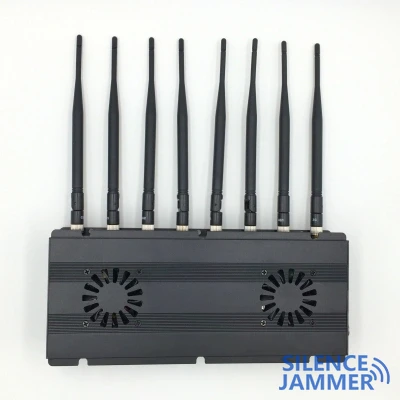Devices that block drone signals, also known as drone signal jamming devices, employ electronic technology to interfere with and intercept wireless signals from drones. They disrupt the UAV's signal by emitting specific electromagnetic waves, rendering it unable to communicate and control normally, or interfere with its navigation system, causing it to lose direction and reducing flight capabilities and accuracy.

- Electromagnetic Jammer: This is the most common type, emitting electromagnetic waves to interfere with drone signals and communication equipment. It can emit waves of various frequencies and strengths to disrupt different types of drones.
- High-energy Laser: These devices use laser beams to remotely locate and interfere with drones, instantly disabling their electronic systems.
- Signal Detector: Passively monitors drone signals to identify and track drones by detecting their signals. Once a drone signal is detected, other devices can be used for further interference and interception.
- GPS signal jammer: Interferes with the drone's GPS receiver by emitting jamming signals, disrupting its ability to position and navigate accurately.
- Spectrum Jammer: Targets the UAV communication frequency band, interfering with communication equipment and disrupting remote control.
- Network Jammer: Targets the UAV cloud control system, blocking communication between the drone and the cloud server, preventing remote commands and control.
Several types of devices are available on the market for this purpose:
These devices find applications in military, public safety, and personal privacy protection. They assist in protecting classified facilities, territorial security, combating crime, ensuring the safety of public events and important places, and safeguarding personal privacy from drone intrusions.
However, there are challenges associated with these devices. Different drones may exhibit varying degrees of resistance to interference methods, necessitating different types of jamming devices. Prolonged interference may affect other legal communication equipment, requiring careful consideration of timing and location for operation. Additionally, jamming drone signals can raise legal and ethical concerns and should be used judiciously.
As technology advances, drone signal jamming devices will likely continue to evolve, providing more effective protection measures for maintaining public safety and personal privacy.


